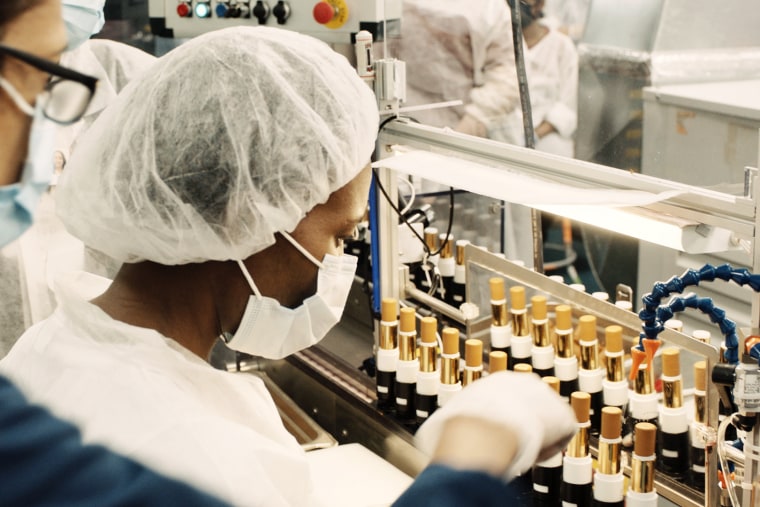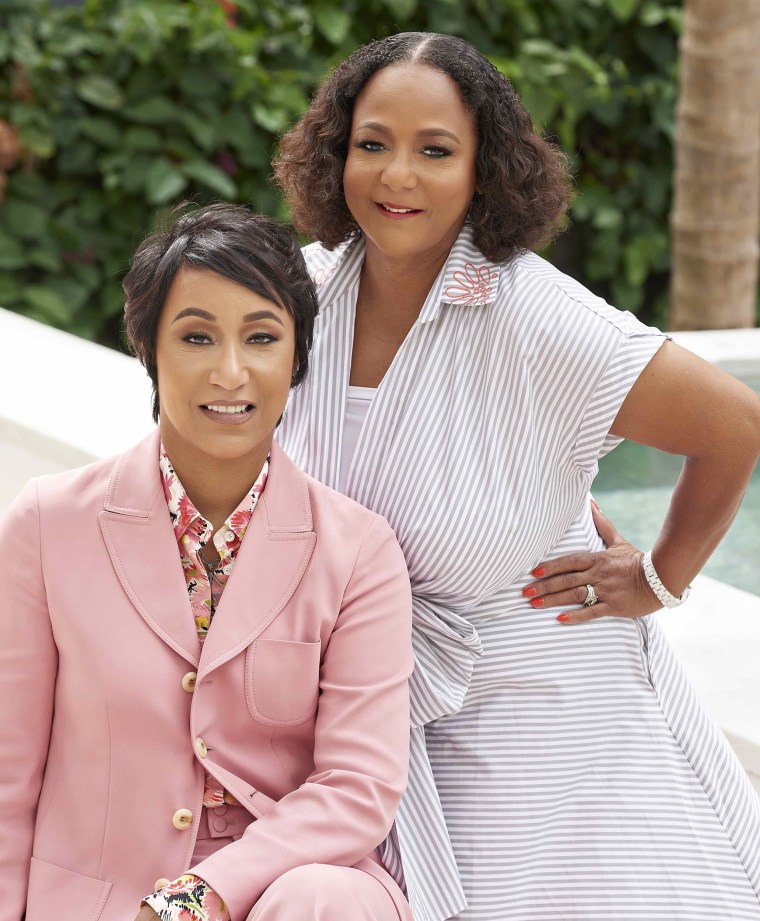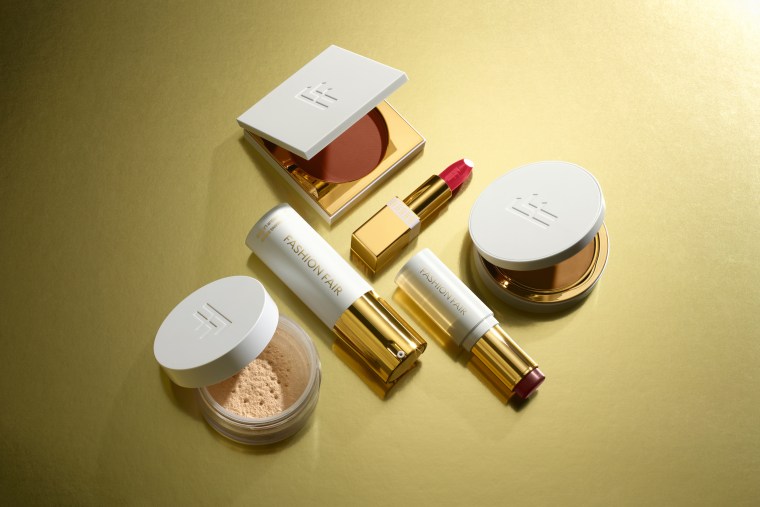How Fashion Fair is helping Black women in the beauty industry
In the new documentary “The Beauty of Blackness,” Grammy Award-successful singer and actor Kelly Rowland reveals a hidden battle that impacted her self confidence onstage: acquiring make-up that matched her complexion.
“It’s so regrettable, because I don’t forget speaking to other products, like supermodels, who explained they had the exact situation,” Rowland explained in the documentary. “They would fix it up on their own — and here we are, 20 years later on, and they are figuring it out, nonetheless.”
“The Beauty of Blackness,” now offered on HBO Max, follows the cross-generational journey of Trend Honest, a single of the to start with Black-owned make-up lines. It follows co-owners Desiree Rogers and Cheryl Mayberry McKissack on their route of buying the brand, the challenges they professional alongside the way and the effect Fashion Good is making in the Black neighborhood.

When elegance pioneer Eunice Johnson released her cosmetics line Style Honest in 1973, she made a new area for Black ladies in the sector. Johnson — also the spouse of John H. Johnson, the founder of Jet and Ebony journals — intended makeup specially for gals of darker skin tones who had been typically not able to discover merchandise to match their complexion. The corporation became just one of the to start with Black-owned worldwide cosmetic traces and broke racial obstacles in company by celebrating Black beauty.
Fashion Good went out of enterprise for extra than two several years before Rogers and McKissack bought the manufacturer in October 2019. Just after achieving the peak of its professional achievements in 2003, the business declined owing to its incapability to hold up with the heightened need and growing competition from other manufacturers that started carrying shades for Black ladies. The closing of numerous division outlets exactly where Vogue Good marketed its merchandise also contributed to the company’s demise.
Following finding that Fashion Honest was headed towards bankruptcy court docket, Rogers and McKissack have been granted ownership of the manufacturer just after profitable a bid in the course of an auction.
“I assume there’s a wonderful entrepreneurial message that occasionally factors are not the way that they need to be, or the methods that could be, and so we have to get it on ourselves to make these adjustments,” McKissack informed NBC News.

Desiree Rogers and Cheryl Mayberry McKissack.Heather Houston / Courtesy HBO Max
Black females frequently deal with hurdles in the beauty marketplace, the two in the lack of make-up solutions for those with darker pores and skin tones and the lack of representation in who owns the corporations.
In 2019, Black buyers accounted for virtually 90 percent of the money expended on ethnic hair and attractiveness products, in accordance to Nielsen. But Black ownership is not reflective of this outsize impact: Black-owned magnificence brands represent only 4 per cent of large-stop makeup revenue. Even with the 15 P.c Pledge, an initiative encouraging shops to dedicate at the very least 15 p.c of their shelf house to Black-owned companies, a lot of however absence these solutions, McKissack reported.
When Rogers entered the entrepreneurial entire world, she faced road blocks that lots of Black women can relate to: She was element of the to start with generation in her family to go to company faculty and arrived from a household that wasn’t wealthy. Fueled by her very own practical experience, she would like to make sure that there is a harmless area for dialogue among the other Black business leaders relating to troubles their providers could deal with as they expand, she mentioned.
Black-owned corporations have a shorter life span, in accordance to 2021 information supplied by McKinsey & Company’s inclusive buyer survey: Only 4 {a0ae49ae04129c4068d784f4a35ae39a7b56de88307d03cceed9a41caec42547} stay in procedure for a very little about 3 years, compared to the 55 {a0ae49ae04129c4068d784f4a35ae39a7b56de88307d03cceed9a41caec42547} regular for all organizations. Aspects this kind of as absence of geographical connections to resources, as very well as a mistrust of institutions, had been barriers Black entrepreneurs confronted in having assist for their businesses, according to a 2020 McKinsey report.
“It’s about solution enhancement,” Rogers reported. “It is about having into distribution. It’s about launching your product or service. … They’re genuine business problems that you will need to address and converse through as you improve.”
In its approximately 50-calendar year history, the make-up manufacturer has lifted a lot more than $55 million for the Black local community via charity events. Style Reasonable also designed a scholarship fund for Spelman University college students pursuing a career in entrepreneurship. Students will also have the chance to take part in an internship — with the purpose of providing them tools to effectively navigate organization in the true earth.

In November, the enterprise initiated “The Art of Shade Matching,” a monthlong, nationwide promotional celebration encouraging girls to vacation to Sephora and uncover their matching foundation. At a person of the activities in New Orleans, which highlighted a overall performance by rapper Huge Freedia, McKissack explained she was approached by a Chicago woman who shared how Trend Honest was the only make-up in a position to include her daughter’s birthmark, which served increase her self confidence.
McKissack mentioned Trend Fair not only experienced “great meaning” for the woman, but also for her daughter. “So which is that cross-generational experience that just just cannot be matched,” she mentioned.
Though brainstorming approaches to attain consumers, Rogers mentioned she would talk to herself, “What would Mrs. Johnson do?”
“It’s genuinely crucial that we can enchantment to a cross section of girls of color,” McKissack claimed, “because we have the exact demands even even though we may perhaps like diverse factors.”
Rogers claimed that at one particular of their situations in Chicago, people today ended up introduced to tears above the nostalgia the manufacturer delivers — demonstrating how the more mature generations who grew up with the model now see their children and grandchildren using the goods.
“They know that we’re going to consider treatment of them,” Rogers claimed. “You’re not likely to get there and not find your shade, or come to feel like, ‘Oh, gosh, this does not seem like me.’ We’re doing this with like for the reason that we are you. I assume anyone at some level wants to glance fantastic to them selves — in conditions of what they’ve picked and how they’re presenting them selves — and it shouldn’t be that tricky of a procedure.”
By bringing the manufacturer back again, Rogers and McKissack are incorporating nearly 50 years of expertise in the entire world of pores and skin treatment.
“For so numerous a long time, we have not been a part of the choice-creating procedure,” Rogers explained. “We have not been capable to say, ‘No, we want this and not only do we want it, we’re going to do it ourselves and get it out there in a sizeable way throughout the region.’”
